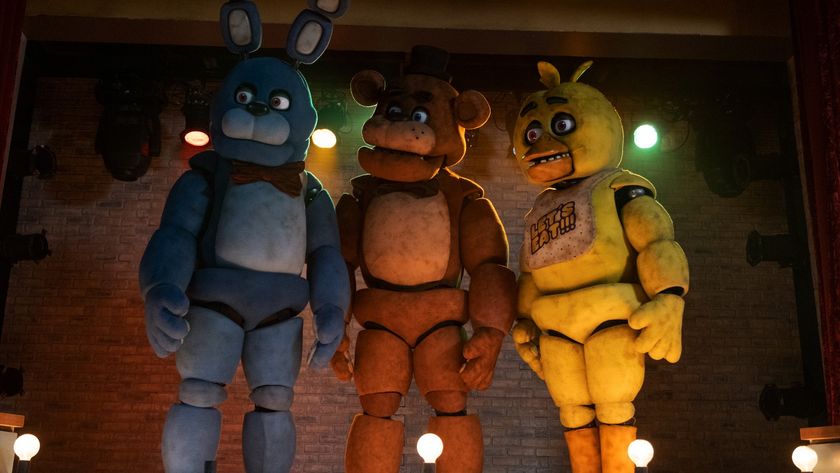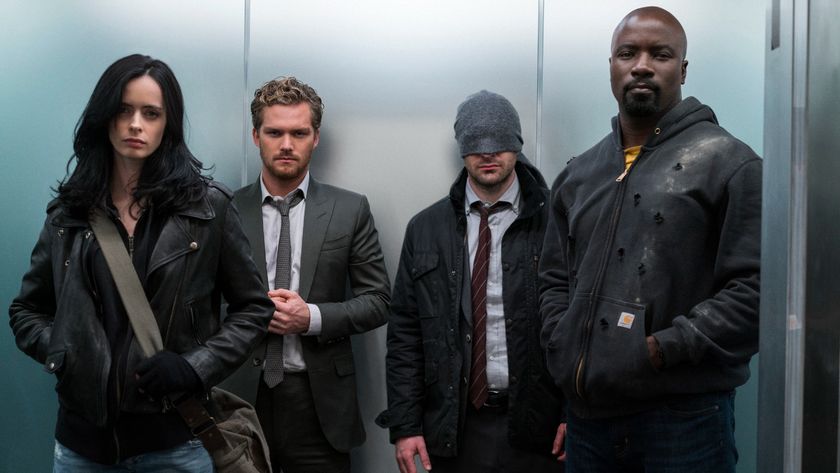Ken Loach and Paul Laverty on The Angels Share: interview
The director and screenwriter tell us about their latest
[brightcove]1557840910001[/brightcove]
The Angels’ Share , the latest film from director Ken Loach, is in cinemas now, and this week we sat down with Loach and his regular screenwriter Paul Laverty to talk about the movie.
While distinctly dark in places, the film is notable for its belly-shaking laughs, and the warmth that exists between its key characters. The Angels’ Share tells the story of Robbie (Paul Brannigan), a young Glasgow lad sentenced to community service after narrowly missing (another) jail term for violent behaviour.
Thanks to the intervention of his service supervisor, Harry (John Henshaw), Robbie has a chance encounter with the world of whisky, and discovers that he possesses a formidable ‘nose’ for the stuff. Picking up the scent of an ultra-valuable whisky, Robbie and his band of community-service cohorts get the possibility to turn around their lives, and it all depends on one barrel…
We headed to London’s Langham Hotel, to talk about the film with Ken Loach and Paul Laverty…
Congratulations on the Cannes jury prize. What do awards mean to you?
Ken Loach: “They validate what you do, in that a group of people say that what you’ve done is OK, and that gives confidence to the distributor and it gives confidence to people in the cinemas to pick the film. It has practical, good results and it gives confidence to carry on and do more.”
Paul Laverty: “I have to say, in all honesty, it’s not something that’s in our conversation, it actually happens much later than when we’re actually working on the film. You can never work or plan to win awards; all you can try and do is enjoy the process each day and there’s a long journey from first talking about the idea to the wrestling match with the screenplay and the casting and stuff.
"So, if something like that happens it’s almost like a little celebration of the joint work of an entire team. I can’t say it’s in our mind, we don’t do the films to win a prize, but there’s a part of you that feels like a child. You’re encouraged but at the same time you feel like a child on the playground, so there’s a contradictory ambience with prizes."
"I suppose we really wanted to try to capture some of that life-force: their wit, their fun, their frustrations and vulnerabilities. That was a sense that we had but you have to root it in something, and the community payback - where a bunch of kids escape prison by their fingertips - is a lovely kind of group scenario. They’re under stress, they’re under control and they’ve got to be there, they’ve got a supervisor so you can introduce other characters.
"If you mix that with the little whisky adventure, how they can plan something, all of that lead us to feel that this might be a more interesting way to tell the story.”
It’s unusual for a director and writer to work together so much and so consistently, did you find that you first had this rapport as soon as you worked together on Carla’s Song ?
Loach: “Yeah, pretty much so. You soon see that you share the same basic outlook – that’s important – you’ve got to see the world in the same way, and have similar pre-occupations so that in a way you find the common cinematic voice. I think Paul’s work has got more complex as the years have gone by, but there are a quite a lot of previous writer-director relationships, aren’t there?”
Laverty: “Ken’s had a long time working with Jim Allen, for example, and Barry Hines so it’s not unusual.”
Loach: “I think the two jobs are so inter-dependent that in order to direct you’ve got to be inside the script, otherwise you’re like a bus driver: the bus rolls up, created by somebody else, and you get in the driver’s seat and drive it. That’s a very mechanical way to make a film. In order to make all the little decisions you’ve got to make in the process of doing it you’ve got to be inside the project, so that you share the same criteria.”
"Often at times when you’re doing research before you write the screenplay you’ll meet characters, like when we came across Paul [ Brannigan ], who you feel might fit the part or a location or just something, and then Ken has to steep himself in that world too, and that’s part of the discussion; maybe that will take us to another place.
"Even right the way through to editing, sometimes some of the same questions we’ve confronted in the writing process, and when we were developing the script, might come up again in editing – so there’s all little moments of contact where it’s just good to talk it through. I’m always amazed, speaking to other writers… so I’ve been really spoilt.”
When you spot talent, like Paul Brannigan, how do you going about giving them the confidence to think they can be an actor, and are they ever intimidated because of your history in films?
Loach: “I don’t think he knew about it us at all… He knew Sweet Sixteen .”
Laverty: “Many of them knew My Name is Joe . I think Ken does give people great confidence; it’s like a football manager. I felt like that at the very beginning, I think it’s a skill and a sensibility. Likewise with Paul, he probably was a bit nervous coming out of his world, but after you speak to people, and have a conversation and a cup of tea, and think about things – you can see his confidence has grown.
Sign up for the Total Film Newsletter
Bringing all the latest movie news, features, and reviews to your inbox
"There’s probably about ten different editions of him; you see him in little moments and give him little things and moments, not from the script but inspired by the script and parallel to the script, to see whether he can actually pull it off or not.”
"Film critics tend to not just see a film for what it is; like it’s just a story. Much more than novels, films have to be categorized by genres – and I don’t think filmmakers think that way at all. Certainly we respond to the raw material, to the people, not other film references. I’ve never met anybody that’s said ‘I want to make a social-realist film’ – it’s not in the way you see things.
"It’s a terrible term anyway, because it’s a euphemism for working-class stories. Social-realism doesn’t seem to apply to middle-class people or bourgeois people or the rich. Yet it’s ‘social’, everything has a social context. It’s a lazy euphemism that should be discarded from the lexicon of film writers.”
Laverty: “The same thing happens with political films. The big entertainment films in the United States are steeped in right wing politics in general, I think: glorified violence, [ rich, powerful characters ] – I’m stereotyping, but in the general sense I think that’s true.
"But that’s seen as entertainment but our films are seen as political, and it’s a way of putting them into a cul-de-sac and making sure they don’t go into the multiplex. But they would never call that political. I think the terms are just very loosely used.”
The Angels’ Share is in cinemas now.
Read our The Angels' Share review.

I'm the Editor at Total Film magazine, overseeing the running of the mag, and generally obsessing over all things Nolan, Kubrick and Pixar. Over the past decade I've worked in various roles for TF online and in print, including at 12DOVE, and you can often hear me nattering on the Inside Total Film podcast. Bucket-list-ticking career highlights have included reporting from the set of Tenet and Avengers: Infinity War, as well as covering Comic-Con, TIFF and the Sundance Film Festival.
Most Popular










